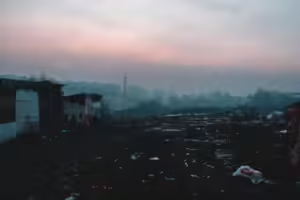

Pollution, Delhi, India’s capital city, is one of the most vibrant and bustling metropolises in the world. However, it also faces a grim reality—alarming levels of pollution that jeopardize the health and well-being of its residents. From hazardous air quality to the contamination of water bodies and rampant waste mismanagement, pollution in Delhi is a multifaceted issue that demands urgent attention. This article delves into the causes, impacts, and potential solutions to the pollution crisis in Delhi.
The State of Pollution in Delhi
Air Pollution
Delhi is infamous for its deteriorating air quality, especially during the winter months. The Air Quality Index (AQI) often plunges into the “severe” category, with levels of PM2.5 and PM10 particles far exceeding safe limits. These tiny particles can penetrate deep into the lungs and bloodstream, causing respiratory and cardiovascular diseases.
- Causes of Air Pollution:
- Vehicular Emissions: Delhi has over 11 million vehicles, making it one of the most vehicle-dense cities globally. The emissions from petrol and diesel engines contribute significantly to air pollution.
- Industrial Emissions: Factories and small-scale industries release large quantities of pollutants, including sulfur dioxide and nitrogen oxides.
- Construction Dust: The ongoing construction activities in Delhi generate substantial dust, which adds to particulate matter in the air.
- Crop Burning: Seasonal stubble burning in neighboring states like Punjab and Haryana exacerbates the pollution, creating a toxic smog over the city.
- Firecrackers: During Diwali, the excessive use of firecrackers worsens the already critical air quality.
Water Pollution
The Yamuna River, flowing through Delhi, is one of the most polluted rivers in India. Industrial discharge, untreated sewage, and religious offerings have turned it into a toxic water body.
- Causes of Water Pollution:
- Industrial Waste: Factories release untreated waste directly into the river.
- Sewage Discharge: Over 60% of Delhi’s sewage remains untreated and is dumped into the Yamuna.
- Religious Practices: Immersion of idols and offerings during festivals adds to the contamination.
Noise Pollution
Delhi’s noise levels often exceed permissible limits, especially in commercial and residential areas. Traffic, construction activities, and loudspeakers are the primary sources.
Soil Pollution
Unregulated dumping of solid waste and overuse of chemical fertilizers in nearby agricultural lands contribute to soil degradation and pollution.
Impact of Pollution in Delhi
Health Effects
- Respiratory Problems: High levels of air pollution lead to asthma, bronchitis, and other chronic respiratory diseases.
- Cardiovascular Issues: Pollutants such as PM2.5 are linked to heart attacks and other cardiovascular problems.
- Waterborne Diseases: Consumption of polluted water causes diseases like cholera, diarrhea, and dysentery.
- Mental Health: Prolonged exposure to noise pollution has been associated with stress, anxiety, and sleep disorders.
Environmental Damage
- Ecosystem Disruption: Pollutants affect flora and fauna, reducing biodiversity in and around Delhi.
- Climate Change: Emissions from vehicles and industries contribute to greenhouse gas accumulation, exacerbating global warming.
- Water Scarcity: Pollution in the Yamuna reduces the availability of clean water for drinking and irrigation.
Economic Impact
- Healthcare Costs: The rise in pollution-related diseases places a heavy financial burden on individuals and the healthcare system.
- Reduced Productivity: Health issues caused by pollution result in absenteeism and decreased workforce productivity.
- Tourism Decline: The reputation of Delhi as a polluted city discourages international tourists.
Efforts to Combat Pollution
Government Initiatives
- Odd-Even Scheme: Implemented during high-pollution periods, this scheme restricts the movement of private vehicles based on their license plate numbers.
- Graded Response Action Plan (GRAP): A systematic approach to combat air pollution by implementing specific measures based on the AQI levels.
- Ban on Firecrackers: Authorities have imposed restrictions on the sale and use of firecrackers during festivals.
- Waste Management Policies: Initiatives like waste segregation and recycling are being promoted to tackle solid waste pollution.
- Tree Plantation Drives: Efforts are being made to increase the city’s green cover to combat air pollution.
Technological Solutions
- Smog Towers: Large-scale air purifiers, known as smog towers, have been installed in high-pollution areas.
- CNG and Electric Vehicles: The government is promoting the use of cleaner fuels and electric vehicles to reduce vehicular emissions.
- Sewage Treatment Plants: Upgrading existing plants and building new ones to treat wastewater before it is discharged into the Yamuna.
Community Initiatives
- Awareness Campaigns: NGOs and citizen groups organize campaigns to educate people about the impact of pollution and ways to reduce it.
- Eco-Friendly Practices: Initiatives like carpooling, using public transport, and reducing plastic use are gaining momentum among residents.
What More Can Be Done?
Policy Recommendations
- Stricter Regulations: Enforce stringent penalties for industries and individuals violating pollution control norms.
- Sustainable Urban Planning: Develop smart cities with green zones, efficient waste management systems, and better public transport.
- Promote Renewable Energy: Transition from coal-based energy to solar, wind, and other renewable energy sources.
- Integrated Water Management: Ensure all sewage is treated and promote rainwater harvesting to combat water scarcity.
Technological Advancements
- Air Purifying Technologies: Encourage the use of air purifiers in homes, schools, and offices.
- Green Construction: Use eco-friendly materials and methods in construction to minimize dust and pollution.
- Satellite Monitoring: Leverage satellite imagery to track pollution levels and identify hotspots for targeted action.
Individual Contributions
- Reduce car usage by opting for carpooling or public transportation.
- Avoid burning waste or using firecrackers.
- Adopt eco-friendly practices like using cloth bags, segregating waste, and planting trees.
- Spread awareness within the community about the importance of combating pollution.
